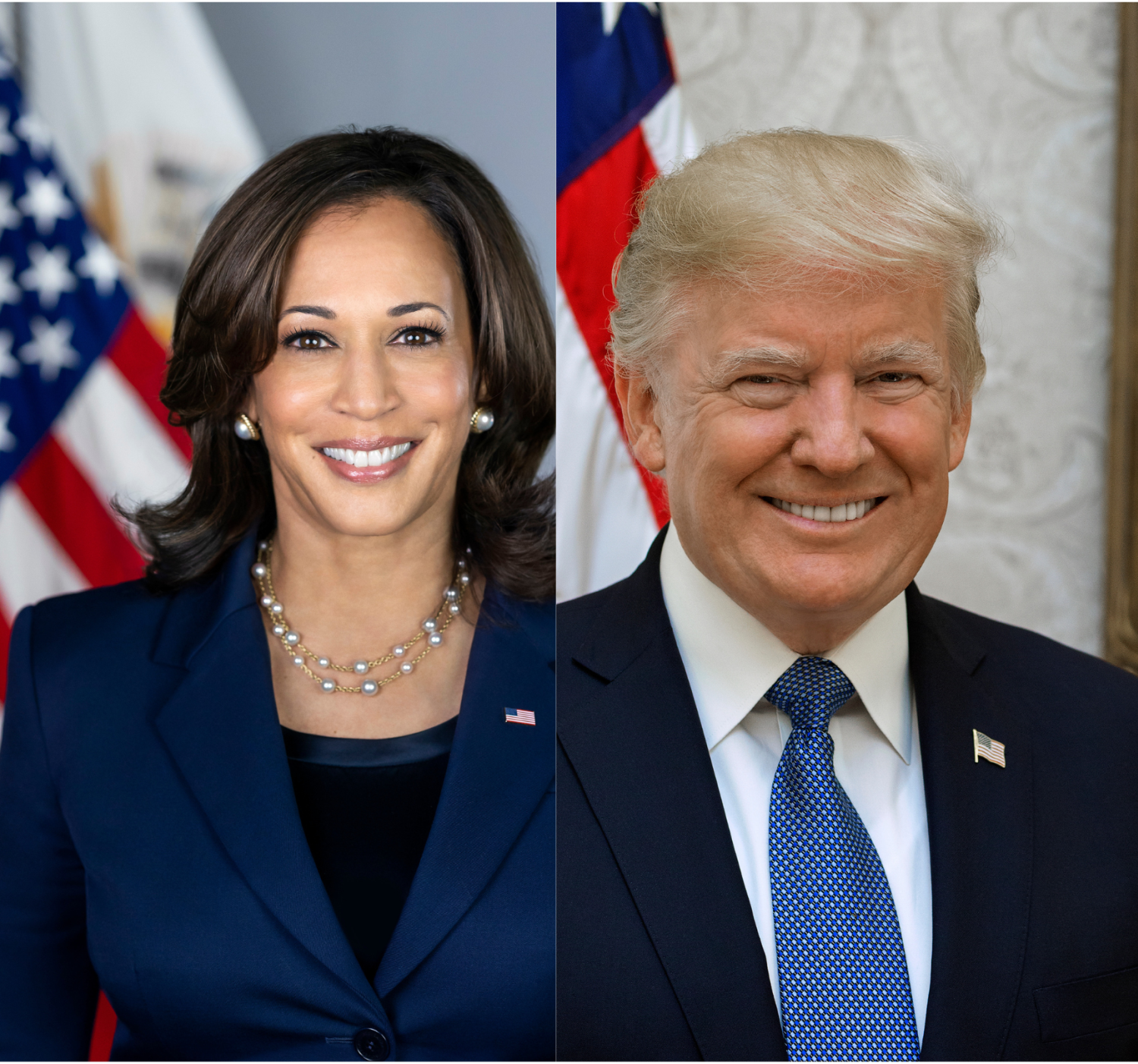Former President Donald Trump and Vice President Kamala Harris delivered their presidential nomination acceptance speeches at the Republican National Convention and Democratic National Convention on July 19 and Aug. 23, respectively. After each candidate detailed their stances on immigration, foreign policy and the economy, it became clear who would provide a better service to our nation as the next president: Kamala Harris.
In Trump’s acceptance speech, he highlighted his first-term successes and criticized how the Biden administration undermined them. He cited his immigration policies, foreign relations and economic plans as examples. Overall, his 90-minute speech detailed his actions as a former president and plans for a second term.
In her acceptance speech, Harris discussed the influence her mother and community had on her. Harris claimed that, if elected, she would continue her diligence as a former prosecutor and attorney general, and as the current vice president. Harris’s main points throughout her speech were reproductive rights, foreign policy, immigration and the economy.
On immigration, Trump boasted about his campaign’s achievements and compared his success to the current administration’s failures. If elected, Trump swore to end the immigration crisis by continuing his construction of the wall and closing the border. On the other hand, Harris addresses immigration through the bipartisan border deal the Biden administration created. Harris vows not to use politics to play with Americans’ safety and to reintroduce the former border deal.
When it comes to immigration, I believe Harris has a stronger plan. Trump’s perceived success in immigration did not come from his administration but from COVID-19. The pandemic significantly impacted immigration levels. Despite more than 400 executive actions relating to immigration, there was no notable decline until the pandemic hit. If Trump plans to continue the immigration policies from his previous term, the results will be minimal unless another global pandemic occurs. Additionally, these executive actions represent a concerning overreach of Trump’s constitutional power. Signing numerous executive orders on a single issue shows Trump’s self-centered attitude toward the presidential role.
On foreign relations, Trump condemned the Biden administration for the escalating relations in foreign affairs. He claimed these international crises would never have happened under his presidency. In contrast, Harris criticized Trump’s foreign affairs policy. The only specifics Harris offers in her plan is the tired statement about the Israel-Hamas crisis: Israel should defend itself, and the events in Gaza are terrible. Yet, Harris never truly takes a particular stance.
On that note, I agree with Trump’s criticism of how the Biden administration handled foreign affairs. In the Israel-Gaza crisis, the Biden administration refused to take a definite stand on either side. They affirmed Israel’s right to defend itself, but the humanitarian issues civilians faced were rarely acknowledged. When Gaza’s suffering is mentioned, it is only empty words, as the conditions persisted and Israel continued to use Hamas as an excuse for genocide.
For economic issues, Trump mainly focused on tax cuts, claiming that his economic policies and large tax reductions strengthened America’s economy. He also criticized the Biden administration for raising taxes and promised to expand initial tax cuts if re-elected. On the other hand, Harris wants to lower the cost of necessities, preserve Social Security and Medicare and create jobs across sectors. She also attacked Trump’s economic plans, arguing that his tax cuts only benefit the wealthy and his proposed national sales tax will increase prices.
I believe Harris would handle the economy best. Having grown up in a middle-class family, she understands what the working class needs. She has a strong record of fighting against big corporations that prey on the middle class during her time as attorney general. On the other hand, as a wealthy businessman, Trump favors big corporations. He will most likely prioritize the rich when enacting economic policies.
Regarding reproductive rights, Harris has made it a central issue of her vice presidency and presidential campaign. She aims to restore the rights granted by the now-overturned Roe v. Wade. She condemns Trump for appointing the SCOTUS judges who overturned Roe v. Wade and vows to sign any bill granting reproductive rights into law. Although Trump did not address abortion extensively in his acceptance speech, he has made it clear that he does not support it.
In this field, I agree with Harris’s standpoint on reproductive rights. Many people need access to abortions to safeguard their livelihood and well-being. Unfortunately, current state governments have overreached into citizens’ privacy rights with restrictive anti-abortion laws. It’s imperative that reproductive rights are restored for the safety and health of citizens.
Overall, Trump and Harris both delivered compelling speeches with valid points; however, Harris shows greater potential for the presidency. While I agree with Trump’s perspective on foreign affairs, Harris proposed policies more beneficial to the economy, immigration and protecting citizens’ rights. Harris would provide a better service to our nation as president.















Ray Taylor • Oct 3, 2024 at 12:53 pm
Love the article! Some really great points were made on both sides. It was obvious Harris was a public defender from her style of speaking. I hope to see something about the Vice Presidential Debate. There’s a lot to talk about there. Great job!